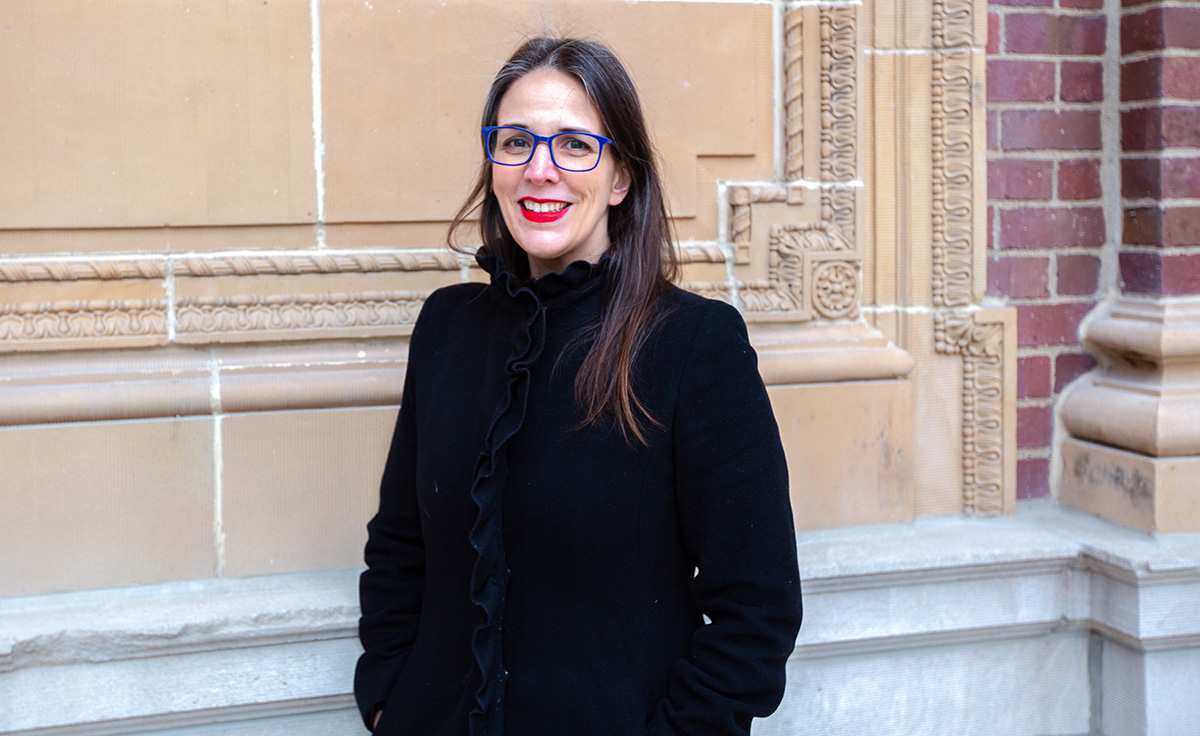Reducing the carbon footprint through single-use plastics reuse
A staggering 5.5 million tons of single-use plastics are generated each year by science labs, negating 83% of the world’s recycled plastics. A team at Illinois was recently awarded a $81,865 grant to reduce dependency on single-use plastics by developing protocols for plastics reuse.

The project, Single-Use Plastics Elimination and Reuse Protocols for Labs (SUPERLabs), is being funded by the Student Sustainability Committee (SSC) on campus. The SSC, consisting of undergraduate and graduate students, provides seed-funding for projects that push towards a more sustainable community. Since 2008, the SSC has allocated $15.55 million—pooled together from student-initiated fees—to 316 projects across campus.
The SUPERLabs project is being led by Illinois Assistant Professor of Anthropology Jessica Brinkworth (GNDP/IGOH), who directs the Evolutionary Immunology and Genomics lab housed in the department of anthropology. The motivation to investigate sustainability stemmed from discussions with Professor of Anthropology Ripan Malhi (GNDP/GSP/IGOH), who co-taught a research ethics class with Brinkworth.
“For many years, our lab was concerned with reducing our overall carbon footprint. The amount of waste generated in our lab was pretty profound,” said Brinkworth. “Waste is never a part of research ethics discussions, but we thought, let's try to do something.”
Before SUPERLabs, Brinkworth and her students first proposed the Carbon Garden project, an SSC-funded effort that was spearheaded by former undergraduate student Kyle Boshardy. The project involves making pollinator gardens, placed near Davenport Hall, and composting food waste generated by people working in the lab.
“It wasn’t until I saw my first monarch caterpillar in the garden that I realized how much this project meant to me,” said Boshardy. “I had helped create this little alcove of nature in this bustling world that helped this little creature grow.”
Soon after, ideas for lab plastics sustainability were discussed as part of a natural progression of the lab’s efforts to reduce their overall carbon footprint. Because of their previous relationship with the SSC, the team proposed the SUPERLabs project and immediately drew their interest.
“The COVID-19-induced plastic shortages hit our lab and every lab around the world hard. The pandemic highlighted the worrying necessity of plastics in lab settings and that prioritizing the reuse, recycling, and reduction of those plastics would help us get closer to making lab work less harmful to the environment,” said Boshardy.
The waste elimination protocols will focus on polypropylene and polystyrene reuse and replacement, which includes culture dishes, pipette tips, and conical tubes. Additionally, protocols will use some specialized equipment but will largely make use of products and equipment that can be found at hardware and grocery stores. An important step in these protocols is the removal of endotoxins, a component of the exterior cell wall of Gram-negative bacteria. Due to the highly immunostimulatory nature of endotoxins, endotoxin contamination can create unwanted variation in lab experiments, said Brinkworth.
“As part of my dissertation, I had to decontaminate plastics and surfaces before measuring lipopolysaccharide concentration in the blood,” said PhD student Negin Valizadegan, who helped in developing the protocols. “That knowledge came in handy for developing endotoxin removal protocols for the plastics project.”
The goal is to share the verified protocols with research labs who may be interested in reusing or bringing plastics for reuse, especially from larger facilities on campus. Brinkworth foresees an estimated 50-90% plastic waste reduction per lab that decides to adopt the protocols.
“Coming from an environmental conservation background, I cherish activities like this which not only can help with the current plastic shortage situation but in the long-run alleviate large plastic waste issues that are common in experimental labs,” said Valizadegan.
“It's exciting to be able to engage students in thinking about their research responsibly. If you want to do something about the culture of disposability in science, it means training students early on in how to think and be responsible to the land on which they work and to future generations," said Brinkworth. "We model how a robust research program incorporates rigorous plastics reuse and reduction protocols in its daily work, that part of being a 'serious' scientist is cleaning up after yourself."
Student-driven efforts also involved PhD students Rachel Rusen and Grace Shaw, undergraduate students Nichole Mischak, Ben Garcia, Kamile Aleksaite, Katy Simmons, Ayaa Tamam, and Sofia Rivera, former undergraduate student Katie Van Etten, former undergrads Alex Alvarado and Priya Bhatt, and former lab member Heather Hicks.
The Department of Anthropology, the Directorate of Research Safety, and the IGB were instrumental in launching the SUPERLabs project.
